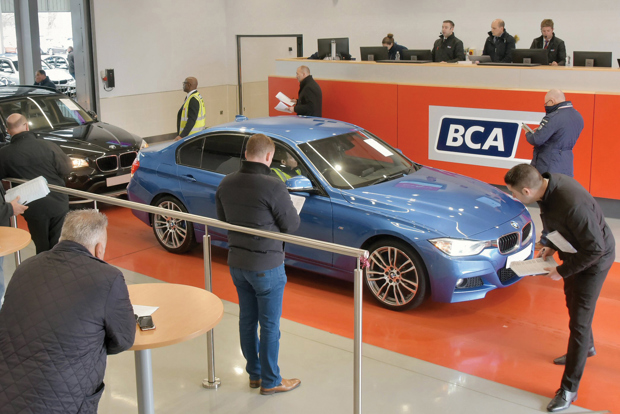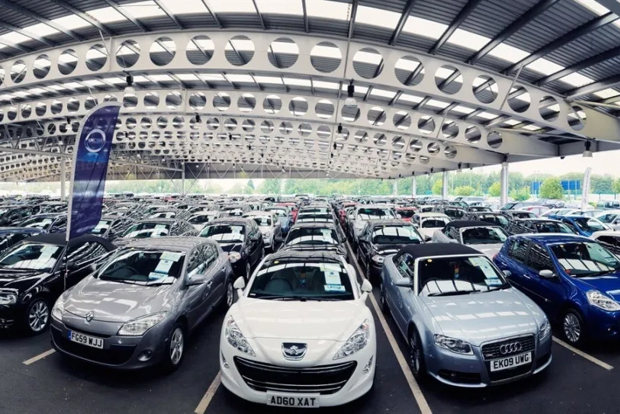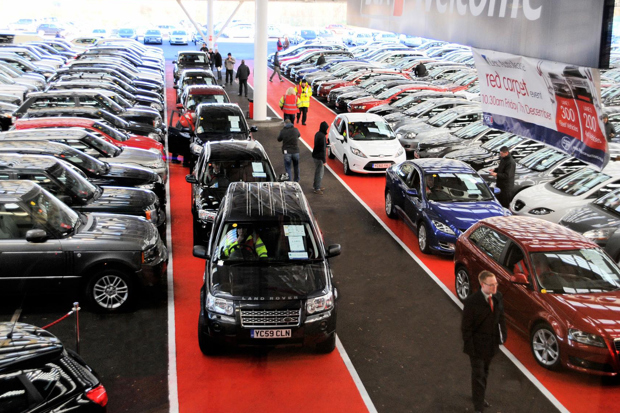Car auctions: Your complete guide to buying a car
Read our full guide to buying a car at auction to find out how it works and if it’s the right choice for you.

- What car auctions are open to the public
- Car auction fees explained
- Your rights if something goes wrong
If you’re looking to save money on your next used car, then buying at auction may well seem very tempting – but it’s not without risk. Far from it, in fact.
First, the good news. Cars sold at auction are generally substantially cheaper than those sold at retail. You can save as much as 50% on a used purchase – a saving that many dealers use as their profit margin because a good number of them use auction houses to source their stock.
So, what have you got to lose by buying a car this way yourself? It’s a tricky question, as there’s a very good reason why traders use auctions to buy cars, but by the same token there’s are several very good reasons why you shouldn’t buy a car from an auction as a private customer.
It all comes down to risk and if you’re prepared to take one. Because if you buy a car at auction and something goes wrong then you could make a costly mistake.
Buy wisely and you’ll save a fortune – but even then, there are no guarantees. That’s what auctions are all about.
Which car auctions are open to the public?
Some of the larger auction houses – notably British Car Auctions and Manheim, which are the 'big two' – now operate on a trade-only basis. But the smaller ones accept private buyers, who will normally have to pay a larger commission.
Some good ones to consider are:
Aston Barclay (nationwide)
Central Car Auctions (Scotland and Northern England)
East Anglian Motor Auctions (Norfolk)
Letchworth Motor Auctions (Hertfordshire)
Anglia Car Auctions (Norfolk)
South West Vehicle Auctions (Somerset)
There are also a number of smaller local auction sites across the UK, so it’s well worth doing an internet search in your area to find your local sales site.
When is a good time to buy a car at auction?
Good times to buy are in late March or late September, when dealers have sold high volumes of new reg models. They often need to clear trade-in stock quickly to make space, rather than sell them to local independent dealers, which is often their preference in quieter times of the year.

What fees are there when buying at auction?
Bear in mind that when the hammer falls, the price the car sells for isn’t the price you pay. That’s what the auction house is paying to the vendor.
All auction houses charge a buyer’s fee and this can vary based on the final sales price, but it’s usually somewhere between 10% and 20% of the final hammer price on top. You need to check this with the auction house before you bid. At a live physical auction the fees will be displayed on the auction house wall – there’s a legal requirement for them to do this.
Some auction houses will let you store the car for a short period and will even allow a few days for payment, but go beyond their deadline and there will be fees for late payment and storage, so again be sure to know what these are before you bid.
You need to also factor in transportation costs. You can collect the car from the auction and drive it away, but you’ll need to tax and insure it first. Once it is through the gate, all road laws are your own responsibility.
What type of cars can I buy at auction?
Anything goes. Small cars, big cars, nearly new, well-used or classics. Whether you’re bidding in a physical auction or an online auction the rules (and rights) are the same. You’re buying something as seen and "as it stands".
That means that you buy the car based on either photos and a description of it (online) or as you see it in front of you (physical auction).
At a live physical auction you have to act quickly. A car can go from entering the auction arena to being sold in less than a minute, so you need to have your price in mind at the start and there’s no time to dither. It’s exciting, but it’s also your problem if you then buy a car with faults.
Buying a car at auction: Is it for you?
The pros
If you buy well, you’ll save a lot of money. This is a good enough reason for those who are prepared to take the risk, but it makes sense to keep some of your budget aside for repairs or rectification as there is no guarantee that the car will be free from faults.
Most cars will come with a condition report that will give you a basic idea of its condition, but rarely are they mechanically tested unless they are relatively new cars from fleet vendors.
The cost-saving is the only real advantage but it can also be a substantial one. As mentioned above, it all comes down to how comfortable you are with risk.
The cons
Once you buy the car, it is yours. Unlike buying from a dealer, you can’t reject it and you get no guarantee whatsoever as to its mechanical condition. The exception being where it is sold with a warranty of some description, but this is rare.
The auction house has no liability – it is purely an agent for the vendor and it is there to orchestrate the transaction between vendor and buyer. The fees are where they make their money.
With a couple of very specific exceptions, if you buy a car and it has a fault, it’s yours to deal with and yours alone. If this worries you, then buying a car at auction is not for you.
What warning signs do I look for?
There are some ways to mitigate risk – for example, auction houses are legally obliged to declare who is selling the vehicle.
Private entries and independent retailer entries are often fraught with risk – for example, why would a small trader sell a popular model in seemingly good order through an auction house, or why would a private seller choose an auction over a trade-in or the small ads? There’s a good chance these cars are hiding something.
A far better option is to look at main dealer trade-ins. These are cars that the big dealer groups take in part-exchange and sell in bulk as they’re too old to retail on their forecourts. If you’re looking for a good car between four and 10 years old, there’s a lot of choice here.

What if something goes wrong with a car I buy at auction?
Sadly, you have no real rights here. Unless something in the description of the car is materially incorrect (hence why auction condition reports normally only focus on visual defects) there’s no comeback.
Most traders know this and factor rectification costs into their bidding – you should, too. Beware, though. A car could need a £5000 engine rebuild. Conversely, it may only need a clean and polish.
Most traders will take the risk and they win more often than they lose, otherwise they wouldn’t be in business. But for a private buyer, buying a high-value car at auction is a big risk. Buying a low value one, less so.
What rights do I have?
Where a car is sold "as it stands" the only comeback you have is if there is something that has been incorrectly disclosed. Like dealers, auction houses have a legal duty to disclose if a car is on the insurance register.
For example, so if they fail to disclose it as a Category S or N insurance write off and it turns out to be one, you’re entitled to a full refund. Similarly, if a car is sold with "warranted mileage" and it turns out there is a mileage discrepancy, you can get your money back.
But unless it’s sold with a guarantee, if it has a mechanical fault that’s entirely on you.
